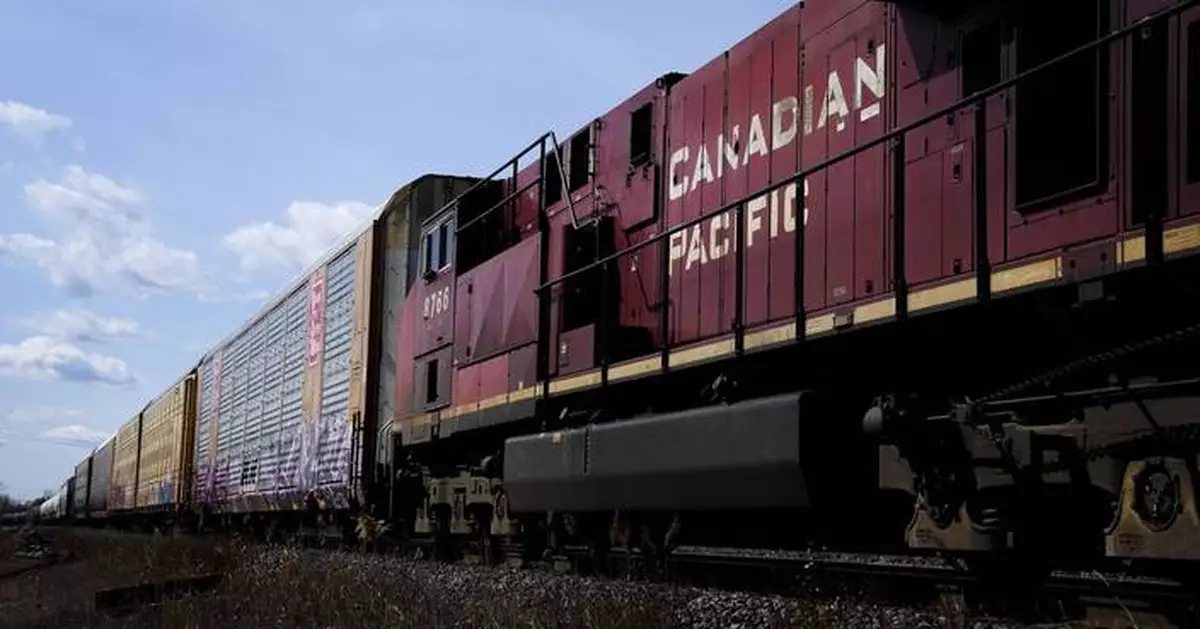A major railway work stoppage has begun in Canada, sparking concerns over its significant impact on supply chains across North America, particularly in the United States. The labor dispute, rooted in disagreements over wage increases and working conditions, has led to a nationwide halt in railway operations in Canadian railway. The ripple effect of this stoppage is expected to be felt immediately, with industries in both Canada and the U.S. bracing for delays and disruptions.

The Core of the Dispute
The conflict between the railway workers’ union and management has been brewing for months. Workers are demanding fair wage increases that reflect inflation and rising living costs, alongside better working conditions, including safer schedules and mental health support. However, the railway companies argue that the current economic climate and the financial pressures from the pandemic make it difficult to meet these demands without affecting their bottom line.
Immediate Consequences
The immediate halt in railway services is already being felt across key sectors, particularly in the automotive, agricultural, and retail industries, which heavily rely on rail for transporting goods. Automakers are particularly vulnerable, with just-in-time production systems that depend on a steady flow of parts. Similarly, the agricultural sector fears spoilage of perishable goods, which could lead to shortages and price spikes in the U.S. market.
U.S. Supply Chains at Risk
With Canadian railways playing a crucial role in North American logistics, the U.S. is expected to experience a substantial impact. Many goods, including raw materials, manufactured products, and essential commodities, flow from Canada to the U.S. via rail. The disruption could lead to delays at major ports and border crossings, exacerbating the ongoing supply chain challenges that have persisted since the pandemic.
Government Involvement
The Canadian government is under increasing pressure to intervene. However, any potential involvement is complicated by the legal framework surrounding labor disputes in the country. While there are mechanisms for mandating a return to work, they are often seen as last-resort measures that could strain relations with labor unions. The situation remains fluid, with negotiations ongoing in hopes of reaching a resolution that prevents long-term damage to the economy.
The Bigger Picture
This work stoppage underscores the vulnerability of supply chains that span multiple countries and depend on a few critical infrastructures. It also highlights the growing tensions between labor forces and employers in an era where workers are increasingly demanding better compensation and working conditions. As global trade continues to recover from the pandemic, such disruptions pose a significant risk to economic stability.
Looking Ahead
Industry experts warn that if the stoppage persists, its effects could be long-lasting. Businesses may seek alternative transportation methods, such as trucking, which could drive up costs and lead to increased emissions. Additionally, consumers in the U.S. could see higher prices and longer wait times for a wide range of products, from electronics to groceries.
The railway work stoppage in Canada serves as a stark reminder of the interconnected nature of modern supply chains and the delicate balance required to keep them running smoothly. As negotiations continue, all eyes will be on whether a resolution can be reached swiftly, or if North America is headed for a prolonged period of disruption.
For more insights into how global events affect supply chains, check out the latest updates on Digital Digest.




